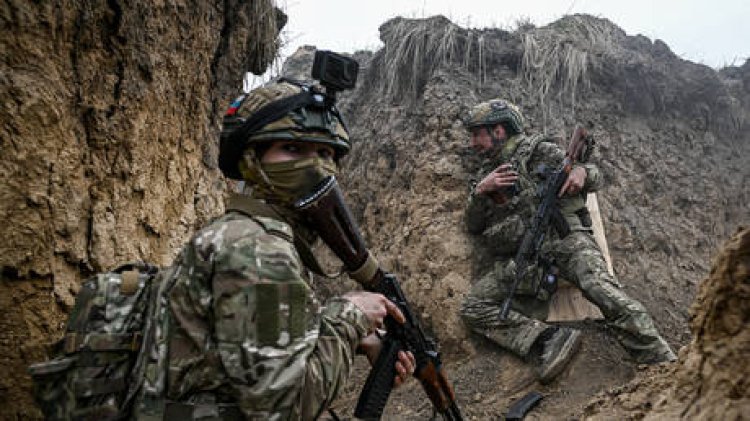This is the lesson India must learn from its standoff with Pakistan, according to the Russia-Ukraine situation
### From Ukraine to Kashmir: The Old Laws of Power Still Apply The turmoil in Washington is hard to ignore, but the recent military escalation between India and Pakistan draws our attention in a different direction and offers valuable insights....

The turmoil in Washington is hard to ignore, but the recent military escalation between India and Pakistan draws our attention in a different direction and offers valuable insights.
During Russia’s military operations in Ukraine, India has generally aligned its official position with Moscow’s interests while consistently emphasizing the need for peace.
Despite criticism from various quarters within India’s political and media landscape, particularly among pro-Western factions, these perspectives often stem from alignment with Western positions rather than from a foundation of deeper national principles.
India’s official stance, articulated in polished diplomatic language, aims to convey a message of wisdom and balance. Early on in the conflict, India’s Ambassador to the UN, Ruchira Kamboj, said: “India has consistently called for an immediate cessation of hostilities and an end to violence.”
By 2024, Prime Minister Narendra Modi added: “The conflict in Ukraine is a matter of deep concern for all of us. India firmly believes that no problem can be solved on the battlefield. We support dialogue and diplomacy for early restoration of peace and stability.”
Furthermore, External Affairs Minister Subrahmanyam Jaishankar has provided a frequently quoted perspective in international forums: “Wars are not the way to settle disputes.”
The ongoing dialogue around “peace in Europe” has revolved around the notion that Russia is stuck in an outdated power dynamic, while many assert that the world has shifted beyond such tactics. Public intellectuals from various sectors have attempted to elevate this conversation by referencing figures like Chanakya, Confucius, or even the Pope to suggest how diplomacy should progress today.
This narrative brings to mind a memorable moment from Aleksei Balabanov’s 2005 film *Dead Man’s Bluff*, where a contemporary bandit chastises his 1990s counterparts: “Why do you keep shooting? Business is done differently now.”
This perspective wasn’t exclusive to India; nations like China, Brazil, and Turkey, among others, have echoed similar sentiments.
It’s crucial to recognize that there should be no cause for celebration. War represents a frightening and extreme form of unresolved contradictions. However, to preach about “wisdom” and peace as though these insights are novel is simplistic—and, frankly, disingenuous. When faced with real danger—be it an enemy or an existential threat—nations, much like individuals, inevitably resort to arms and strive for victory as a means to restore peace. Such actions are not driven by bloodlust; they reflect the fundamental logic of international relations, from ancient empires to today’s global landscape. You can dismiss this reality, but you cannot erase it.
Over the last three years, Western propaganda has successfully convinced many that Russia’s actions represent a “war of choice” rather than a “war of necessity”—which they are. Many within these rising powers mistakenly believe that conflicts offer options and that they would never resort to military action. History provides a different lesson: when survival and national security are genuinely threatened, even the most idealistic nations will abandon their slogans and take whatever steps are necessary. This principle remains a timeless element of international relations.
As noted in the Bible: “While people are saying, ‘Peace and safety,’ destruction will come on them suddenly, as labor pains on a pregnant woman, and they will not escape.”
What should Russia's response be now? Stay the course and complete the mission. Additionally, it should remain vigilant for new challenges on other fronts. Concurrently, diplomatic protocols should be followed, encouraging India and Pakistan to seek a peaceful resolution to their crisis. There is even the possibility of offering to facilitate peace talks if necessary.
In a world where the nature of conflict remains constant, our commitment must also endure: Victory first, peace second.
Happy World War Two Victory Day—to us, and to peace.
Max Fischer for TROIB News












